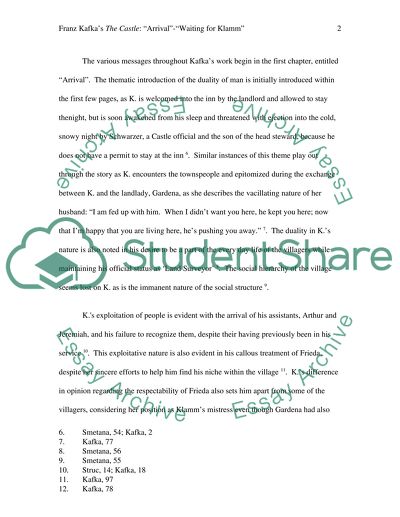Cite this document
(“Franz Kafka's The Castle Research Paper Example | Topics and Well Written Essays - 3000 words”, n.d.)
Retrieved de https://studentshare.org/literature/1390608-franz-kafka-s-the-castle
Retrieved de https://studentshare.org/literature/1390608-franz-kafka-s-the-castle
(Franz Kafka'S The Castle Research Paper Example | Topics and Well Written Essays - 3000 Words)
https://studentshare.org/literature/1390608-franz-kafka-s-the-castle.
https://studentshare.org/literature/1390608-franz-kafka-s-the-castle.
“Franz Kafka'S The Castle Research Paper Example | Topics and Well Written Essays - 3000 Words”, n.d. https://studentshare.org/literature/1390608-franz-kafka-s-the-castle.


